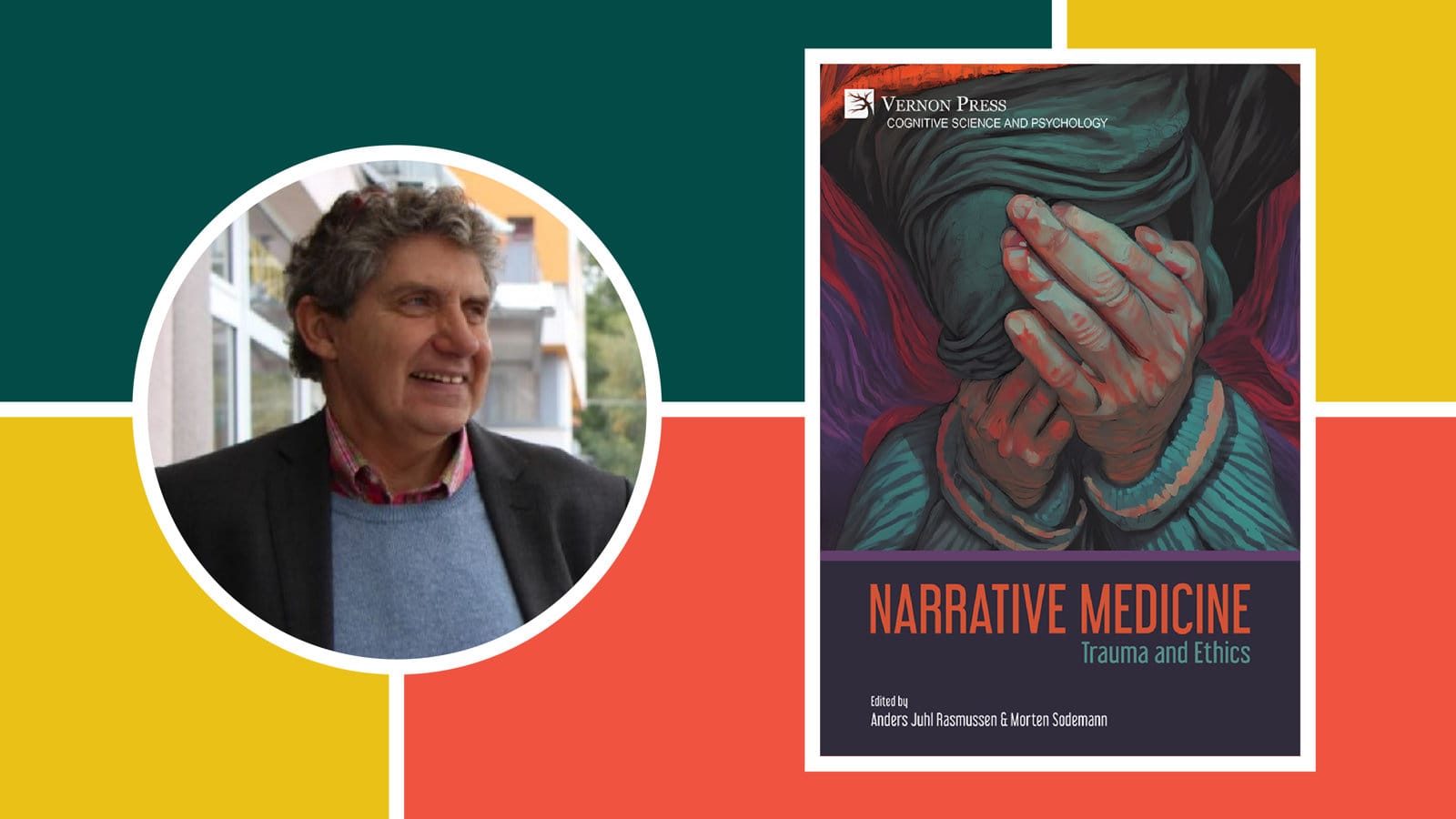John Launer, member of our International Advisory Board, narrative medicine educator, and writer, shares the origins that led to his collaboration with Anders Juhl Rasmussen and Morten Sodemann that culminated in a chapter that appears in the edited collection Narrative Medicine: Trauma and Ethics (Vernon Press, 2024).
A couple of years ago, Anders Rasmuss attended a workshop I ran for Danish physicians. I introduced them to a form of narrative practice we teach in the UK, internationally called ‘Conversations Inviting Change,’ designed for everyday healthcare encounters. It relies on close attention to people’s narratives and sensitive inquiry into them, allowing them space to evolve under their own momentum rather than offering interpretations or advice. Some time afterwards, Anders invited me to contribute a chapter to the book he was editing with Morten Sodemann, Narrative Medicine: Trauma and Ethics.
When he asked me to do this piece of writing, I recalled how many of the narratives we hear from doctors and health professionals in our workshops and courses describe experiences of trauma: not just the trauma experienced by patients, but also encounters at work they have themselves experienced as traumatizing. These might occur, for example, as a result of abuse by patients (who themselves may be victims of trauma), entrenched conflict at work, or an unsustainable workload with inadequate collegial and emotional support. Our work with professionals caught up in these situations generally involves providing them with a safe space to share their own narratives, usually in small peer supervision groups. Using approaches drawn from systemic and narrative therapy, we train the members of these groups to listen without judgment, inquire into thoughts and feelings without any presuppositions, and let the narrators reflect on possible routes towards a resolution.
In my chapter, I describe that process with two case examples; these examples are each drawn from a number of real-life pieces of work in our workshops. They are fairly typical of the everyday trauma experienced by healthcare professionals. One case describes a young doctor, who came out of his training tremendously enthusiastic about his calling, but was placed in a unit for elderly people where he was required to apply policies and procedures he considered to be unethical and inhumane. This made him unable to sleep, lose weight, and become “a shadow of himself” in the eyes of his friends. The other case concerned a physiotherapist, who was verbally threatened by a patient and felt unprotected by her manager. In both cases, these professionals benefited from the process of narrative inquiry into their experiences in the context of their peer supervision groups. They were each able to think about ways forward in their professional lives and take the first steps towards restoring their faith in themselves and the love of their work.
Over the course of nearly thirty years, we have taught this form of narrative-based peer supervision to thousands of health professionals in over twenty countries. It has led us to believe that the most important mission of narrative medicine is to increase narrative competence among practitioners for the benefit of patients — but an absolute prerequisite for this is to expose them to conversations where they can be the recipients of this as well. There may be no more crucial task for teachers and practitioners of narrative medicine.
Narrative Medicine: Trauma and Ethics was published by Vernon Press in April 2024. More information from the publisher.
